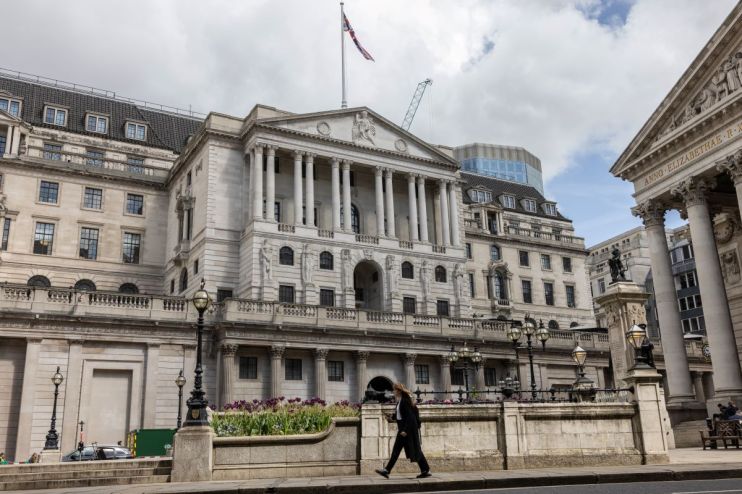| Updated:

A former Bank of England rate-setter has suggested that high inflation levels call for interest rates to be held at 4.5 per cent in May.
The majority of investors and analysts are expecting the Bank to cut interest rates next month to ease low growth concerns, with up to three more cuts priced in until the end of the year.
But Jonathan Haskel, who was a member on the Bank’s Monetary Policy Committee (MPC) until August last year, has said that a “wait and see” approach should be favoured despite deflationary effects from President Trump’s tariffs .
“Core inflation in the UK, dominated by domestically generated service sector inflation, is above target-consistent levels,” Haskel told City AM.
“Thus, and given the uncertainty around what the enduring tariff level will be, I would favour a ‘wait and see’ policy and so hold UK rates at the next meeting.”
Inflation hit 2.8 per cent in February this year, with a five per cent rise in services prices driving the high rate. The Bank of England’s consumer price inflation (CPI) target rate is two per cent.
Haskel acknowledged that the sweeping tariffs would depress economic activity and drag growth as the world adjusts according to open trade with the US.
He also echoed current MPC members Swati Dhingra and Megan Greene in claiming that the tariffs would be “deflationary for the UK economy”.
The flooding of cheap goods to the UK from countries including China – which is suffering the highest level of tariffs out of any country at more than 100 per cent – would also likely push prices down, Haskel said, but he nevertheless stuck to his position.
The comments provide insight into the thinking behind more hawkish members on the MPC as sticky inflation continues to unnerve policymakers. Clare Lombardelli, who is currently on the MPC, said at an event on Tuesday that the effect of Trump’s tariffs on inflation remained unclear as other countries continue to plan retaliation.
Haskel’s view differs from that of former deputy Bank governor Charlie Bean, who called for a cut of up to 50 basis points. Former rate-setter David Blanchflower went as far as suggesting an emergency meeting should be called before May 8.
Peel Hunt’s Kallum Pickering, who claimed he normally took a hawkish view on monetary policy, said the Bank had an “easy” decision to cut interest rates as high inflation was no longer a concern as a result of tariffs.
“We can worry a lot less about inflation, and therefore we can start easing a little bit faster,” he told City AM.
“Growth is likely to be weaker, so rates need to come down.”
“If I were Andrew Bailey, I would call the Prime Minister up today and say, ‘if you want us to get rates down, don’t respond with reciprocal tariffs, and then we won’t have to worry about a near term inflation shock’.”
He also said forecasts estimating inflation could reach as high as 3.75 per cent were not “irrelevant”.
“It’s not even worth paying attention to economic data that is telling you about the economy before the US dramatically escalated tariffs. It’s just, it’s redundant.
Pickering also suggested that the high gilt yields, which are raising borrowing costs, were a result of fears of low growth and the changes were further justification for the Bank to lower interest rates.
“In a strange way, if the Bank of England were actually to go a little bit quicker with rate cuts and support growth expectations, it would probably have the effect of reducing bond yields in the long run because markets would worry less about recession risk.”
Central banks around the world are rapidly responding to the impacts of a full-blown trade war.
Policymakers in India and New Zealand cut interest rates on Wednesday. Reserve Bank of India Governor Sanjay Malhotra said “concerns on trade frictions are coming true”.
The US Federal Reserve has come under pressure from JP Morgan executive Bob Michele – and the US president himself – to cut interest rates.
Federal Reserve Bank of Minneapolis President Neel Kashkari said high inflation expectations in the US would delay interest rate cuts while some analysts believe that markets may have overestimated the number of cuts due to be made this year.
“The Fed is being held back from providing additional policy rate cuts because there is limited evidence that the economy needs immediate additional support,” Seema Shah, chief global strategist at Principal Asset Management, told City AM.
“In order to cut rates, the Fed needs to believe that softer growth will exert downward pressure on inflation in the medium term and inflation expectations must remain anchored.
“The path to easing has become narrower and more uncertain.”